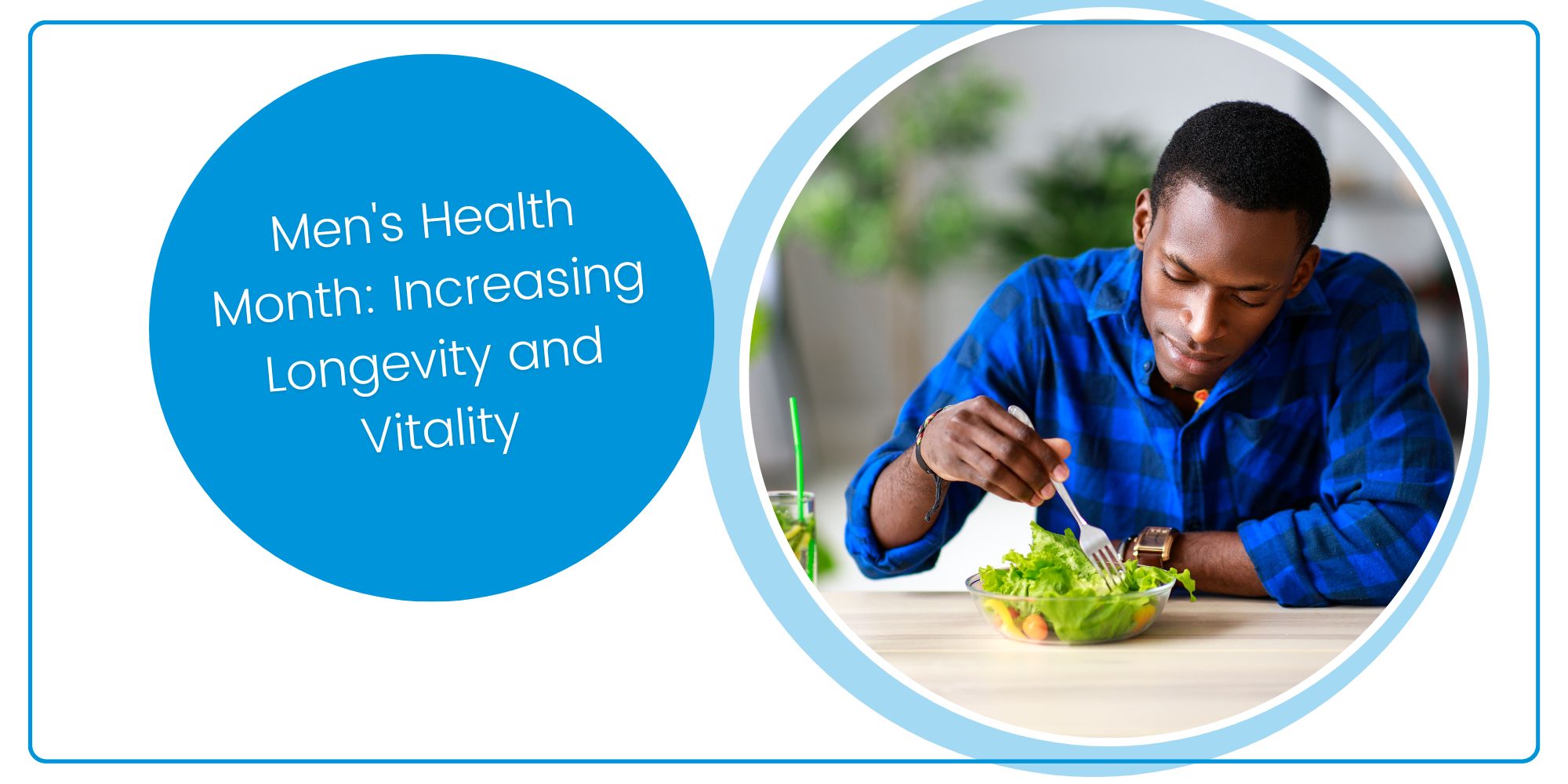
June is Men’s Health Month. We dedicate this time to raising awareness about and highlighting the unique health challenges that men face throughout their lifespans – ranging from heart disease and diabetes to depression and prostate issues.
“Men are advantaged in every aspect of our society, yet we have worse health outcomes for most of the things that will kill you,” says Derek Griffith, director of Georgetown University’s Center for Men’s Health Equity in the Racial Justice Institute. Life expectancies for men in the United States tend to be much shorter than women’s – in fact by almost six years.
While there are many factors that contribute to this situation including unhealthy eating, smoking, more risk-taking, as well as increased alcohol and smoking, the good thing is that they are easily reversible. Fortunately, there are simple ways to avoid these health risks. We will discuss the various aspects of men’s health, from nutrition to physical activity, and discover several ways to support men in their journey toward improved vitality.
1. Make time for your annual check-up. Interestingly, fear of what might show up at a doctor’s visit and the “lack of time” are probably the main reasons why you (and most men) tend to skip crucial appointments. However, avoiding them altogether can be a costly mistake. Early screening, detection, and treatment significantly enhance survival rates and reduce the overall cost of treatment by two to four times.
To make the process easier— familiarize yourself beforehand with what to expect when you visit the doctor’s office. Know that the prostate exam itself lasts no more than 20 seconds, and you can practice deep breathing during that time. Remind yourself that enduring a slightly awkward minute could potentially result in a longer and healthier life if a problem is detected early on.
Curious to know more about your levels of inflammation or risks for cardiovascular disease? Measuring your High Sensitivity C-Reactive protein (hsCRP) is the way to do so. This is a crucial marker for assessing men’s health.
2. Keep moving. Staying active is the key to longevity. Regular physical activity is a core part of men’s health and provides numerous benefits to the mind and body. Engaging in exercise promotes cardiovascular health, reduces the risk of chronic diseases, and enhances overall well-being. Cardiovascular exercises, strength training, and activities that improve flexibility and balance are all important components of an active lifestyle.
3. Eat well. Did you know that an unhealthy diet is the cause of hundreds of millions of deaths in the US each year? Consume a diet rich in vegetables, fruits, lean protein, fiber, and probiotics and stick to eating organic/biodynamic whenever possible.
Additionally, ensure that the foods you enjoy the most are not adversely affecting your immune system. Certain foods, chemicals, and medications can put excessive strain on the immune system, hindering its ability to defend and repair itself as effectively as possible. Consuming these hidden immune burdens can contribute to or worsen chronic conditions like autoimmune diseases and diabetes. To promote a healthier immune system, consider adopting an alkaline diet and consult with your healthcare practitioner regarding LRA (Lymphocyte Response Assay) testing , which can help identify the specific immune triggers relevant to your situation. Discover all tests we offer here.
4. Supplement wisely. While following a healthy diet, it is still possible that you are not receiving all the necessary nutrients to reach optimum vitality. However, it is important to be smart about supplementation, so consult with your healthcare provider before choosing. To get you started, we have compiled a list of the most beneficial nutrients for men’s health:
- Omega-3 fatty acids: Support vital heart health, brain function, and joint health.
- Vitamin D: Supports healthy bones, helps the absorption of vitamin C, promotes optimal testosterone production, and aids in muscle function and the immune system
- B vitamins: Aid in energy production, nerve function, and cardiovascular health.
- Magnesium: Supports healthy muscles, nerves, and bones, boosts your immune system, and may prevent heart disease.
- Zinc: Promotes optimal testosterone levels, aids in sperm production and fertility, and contributes to prostate health.
5. Get a handle on that stress. Stress can affect men and women, but men don’t usually report those symptoms and tend to brush them aside. This leads to higher rates of depression in men. Find a favorite relaxation technique. Whether it’s mindfulness meditation or yoga, or simply focusing on your breath, devoting even a few minutes to these techniques can steer the body away from the harmful effects of stress.
It’s not too late. By following these steps, you can lay the foundation for long-term wellness. Small but gradual lifestyle changes in addition to proactive healthcare measures will put you in the best spot for significant improvements and lifetime vitality.
